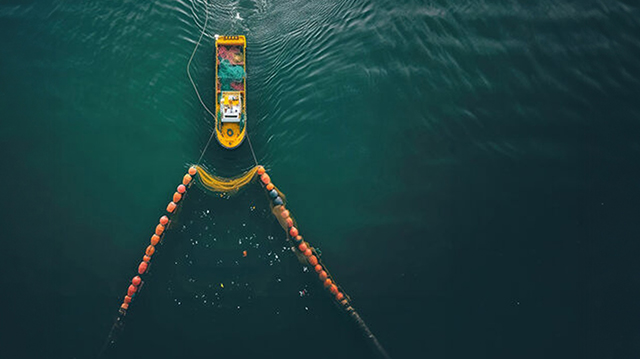
Technology options for reducing plastic waste in the oceans
- Project team:
- Thematic area:
- Topic initiative:
Comittee on Education, Research and Technology Assessment
- Analytical approach:
TA-Kompakt
- Startdate:
Oktober 2024
- Enddate:
2025
sprungmarken_marker_4441
Background and central aspects of the topic
Litter is found in all marine waters around the world. Marine litter consists of many materials, of which plastics are of particular concern due to their high prevalence and potential impact Between 19 and 23 million tonnes of plastic waste enter aquatic ecosystems each year, affecting habitats and natural processes, with implications for the ability of ecosystems to adapt to climate change, food production and social well-being. As recently as 2021, the authors of a study published in Nature wrote that only a few technologies for removing waste from aquatic ecosystems had reached market maturity, and there was little knowledge about their efficiency and ecological impact. Since then, however, many such technologies have been developed. The Dutch initiative "The Ocean Cleanup", which has collected a total of 10,000 tonnes of waste from the world's oceans in recent years using floating plastic collection systems, has received particular media attention. At the same time, technologies for removing waste from oceans, seas and rivers are being heavily criticised as a pseudo-solution due to their high energy and resource consumption and greenhouse gas emissions, and the importance of prevention strategies that address the root causes of pollution is being emphasised.
Objective and approach
A TA compact study will be carried out to analyse the potential and impacts of technological options to reduce plastic waste in the oceans. The following key questions will be addressed:
- How does plastic waste accumulate in the oceans?
- How dangerous is plastic waste for marine animals and humans?
- What technologies can help reduce the amount of plastic in the ocean?
- What are the risks to habitats and ecosystems associated with the use of such technologies?
- What policy instruments can be used to ensure that these technologies are used effectively and in an environmentally sound way?
As a first step, the state of knowledge on sources, pathways, dispersal, accumulation and degradation of plastic waste in the oceans will be summarised. The state of knowledge on hazards and toxicity to humans and ecosystems will also be outlined.
In a second step, the current status of existing technologies for the identification and removal of plastics from water bodies will be reviewed with the help of external expertise in order to assess their market maturity and cost-effectiveness. The removal of plastics from open seas and oceans is particularly cost and resource intensive, and the impact of such technologies on ecosystems is scientifically highly controversial. In this context, technologies for the removal of waste from inland waterways, ports and beaches should also be considered. Performance, resource and energy efficiency (taking into account the possibility of subsequent waste recycling) and greenhouse gas emissions should be assessed.
In addition, the state of knowledge on the impact on ecosystems (e.g. by-catch, removal of important organic substances) will be presented, although data on the ecological impact of the use of cleaning technologies are still scarce, as there are currently no documentation requirements nor, for example, standards for recording by-catch.
Success factors and enabling conditions discussed in the scientific literature (e.g. requirements for design, evaluation and monitoring, international cooperation, knowledge transfer) are summarised and knowledge gaps identified.
In addition to the available literature, further information on the status of ongoing projects will be collected through interviews.
Project progress
As part of the TA compact study, two brief reports were commissioned to take stock of current technological developments for removing plastics from water bodies and aquatic ecosystems. Together with other recent research, their findings form the basis of the final report, which has been submitted to the new TA reporting group.
